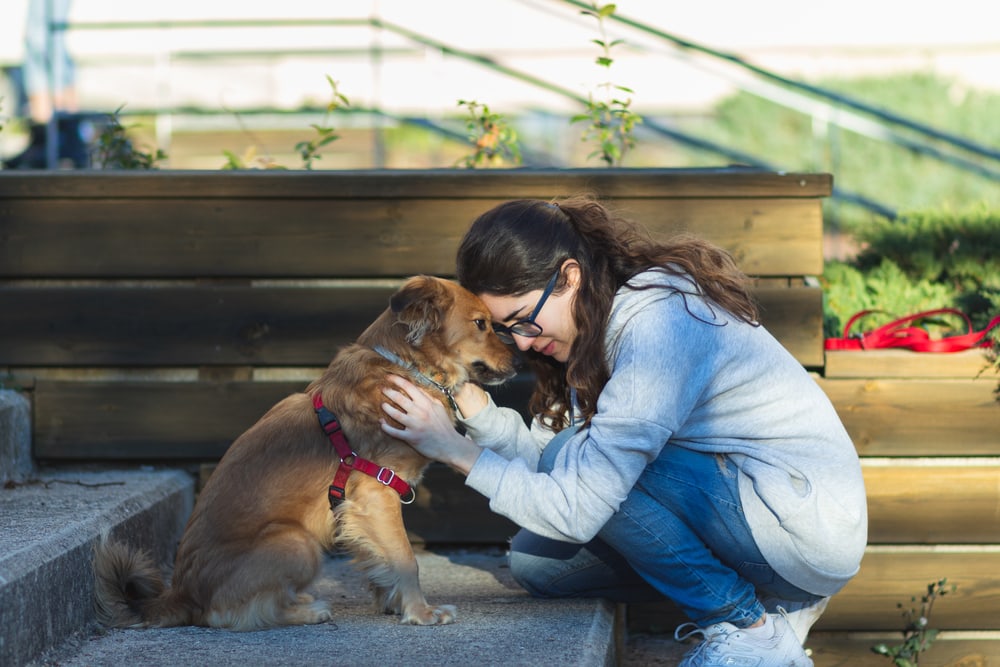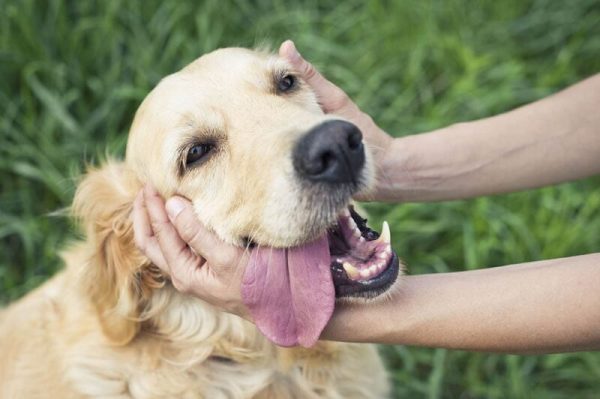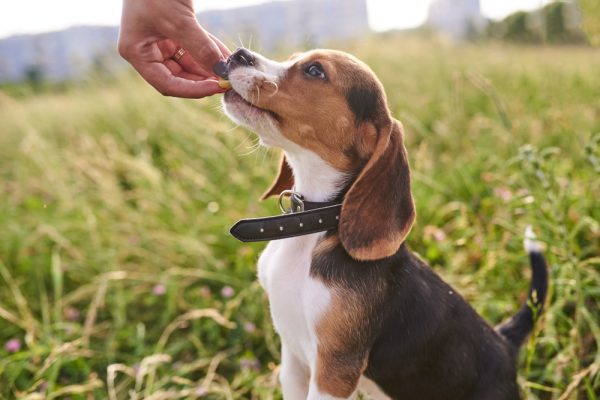Have you ever wondered if your beloved canine buddy has emotions? Do they feel sadness, happiness, joy, and love? Does that sweet tail wag when you come home mean what you think it does? Yes, dogs have emotions and are capable of experiencing fear, guilt, sadness, and love.1
Humans have trouble understanding their dogs’ interior experiences because we rely so heavily on language to express our feelings and emotions. Dogs have complex inner lives. Dogs are also incredibly intelligent! The average canine knows around 165 words, can count to five, and can learn by watching humans and other dogs solve problems.2 They can even engage in deception to get a tasty treat. Read on for more information about dogs and their emotions.
How Do Scientists Know Dogs Have Emotions?
Some of the most groundbreaking research has used technology to measure dogs’ responses to emotional stimuli. Canine and human brains share several structures, including the areas responsible for producing, measuring, and regulating emotions.1 Dogs also have many of the same hormones as humans, particularly oxytocin, which produces feelings of love.
Dogs also produce dopamine, the neurotransmitter related to feelings of pleasure. The canine caudate nucleus features several dopamine receptors. When given praise, treats, or a whiff of their owner’s smell, the canine caudate nucleus sparks to life, indicating that dogs experience some emotions just like we do.3
But dogs have different sensory abilities than humans, which impacts how they understand the world. Dog emotions are triggered by different stimuli than human feelings. Dogs, for instance, can’t recognize themselves in mirrors and don’t rely as heavily on sight for identification.

Can You Hurt Your Dog’s Feelings?
Absolutely. Dogs feel many of the same emotions as humans, including fear and sadness. Because they don’t always understand our specific words, dogs rely heavily on our tone of voice and body language to know when we’re upset or angry.
Speaking harshly to your dog can cause it to withdraw and avoid engagement. This sensitivity is one of the main reasons dogs respond well to training techniques involving positive reinforcement and encouragement. Canines often develop behavioral problems when they don’t receive enough attention or their owners repeatedly ignore attempts to play.
Dogs often show their emotions through body language and vocalization. Depressed canines often withdraw, show little interest in playtime, and sometimes become destructive. They’ll bark excessively, and some begin peeing inside. Lethargy and lack of appetite are also common signs of canine depression.
Do Dogs Have Empathy?
Dogs demonstrate empathy towards their owners, as anyone who has ever loved a dog can attest. Dogs actually have similar stress hormone levels as their owners. A study determined that depressed owners had dogs with increased cortisol levels.4 Dogs feel their owners’ distress, internalize those feelings, and experience physical changes in response. Dogs will even lick and nuzzle strangers in pain.
Dogs have the intelligence of human toddlers, but many child psychologists suggest that children that young don’t have the cognitive ability to empathize.5 Some suggest that what is often described as empathy in dogs is a simple learned response. Your dog gives you extra kisses when you’re down because they’ve had positive experiences after doing so in the past.

How Smart Are Dogs?
Adult dogs are about as smart as the average 2-year-old human; most are capable of feeling similar range of emotions as those exhibited by human toddlers. Some dogs can learn around 165 words, but the most intelligent canines can often recognize up to 250 words if hand signs are included. Dogs can count up to five and are aware of simple computational errors. According to psychologists, dogs have three types of intelligence: working, instinctive, and adaptive.
There are differences between breeds when it comes to doggy smarts. Border Collies, Poodles, and German shepherds¹ are the three most intelligent breeds. Dobermans and Golden Retrievers are also smart pups that often serve as rescue and therapy dogs.
How Can I Best Support My Dog’s Mental Health?
Concentrate on the basics! Feed your companion high-quality pet food packed with nutrient-dense protein, ensure they get enough exercise, and give them lots of mental stimulation. Sunshine, love, good food, and exercise create a solid foundation to support your dog’s mental and physical health.
Dogs have different exercise needs, with smaller pets often being fine with a few short daily walks and breeds such as Huskies and Dobermans requiring around 2 hours of heart-pounding movement per day. Dogs that don’t get enough exercise often become anxious and destructive.
Because dogs are so intelligent, they require mental stimulation to stay engaged and happy. Training provides fun opportunities to run about, explore, learn new commands, and interact with the world. It’s a great bonding activity that can increase the quality of your relationship with your pet.
Daily walks allow dogs to investigate their world using their sensitive noses, but try to keep your dog on a regular schedule and minimize environmental changes as much as possible. Some dogs struggle emotionally when their owner changes jobs or a new pet (or person) comes home to live.
Conclusion
The science is clear: dogs have emotions. They’re able to feel joy, happiness, love, and fear. Their caudate nucleus even responds to positive experiences as ours do. Love and fear are very real experiences for dogs, which is one of the reasons creating a warm, welcoming home for your pet where their needs are met is so important for their happiness and health. Most dogs need 30 minutes to 2 hours of exercise per day, ways to engage their curiosity, and a good dose of playtime with their favorite people to be at their best.
Featured Image Credit: My July, Shutterstock




















